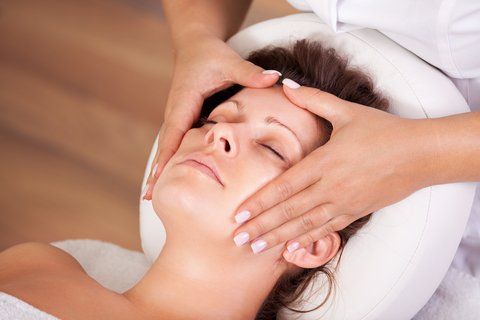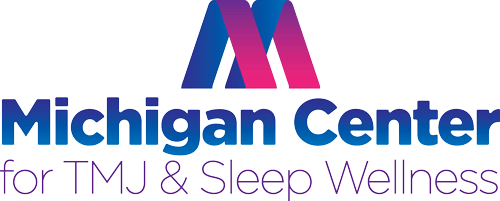Physical Therapy for TMJ Detroit
Temporomandibular joint disorder (TMJ) is a musculoskeletal condition that benefits from many different treatments, often practiced in combination with one another. Physical therapy can help people with TMJ to get better results, including more complete resolution of pain and other symptoms, less recurrence of symptoms, and better management of symptoms. It’s a great adjunct to other TMJ treatments, including oral appliance therapy and even TMJ surgery.
If you are looking for a comprehensive approach to treating your TMJ
in Detroit, please call (248) 480-0085
or email us
for an appointment with a TMJ dentist
at the Michigan Center for TMJ & Sleep Wellness.
What Is Physical Therapy?
When Is Physical Therapy Appropriate for TMJ?
Physical therapy can also help when your posture contributes to your TMJ. If certain postures tend to trigger TMJ, a physical therapist can help. A physical therapist may also be able to help if you are generally unhappy with your posture.
Physical therapy is also a great help for people undergoing TMJ surgery, because it can speed recovery and improve results.
Physical Therapy Approaches to TMJ
Massage is one of the most common physical therapy approaches to TMJ. A physical therapist may massage your chewing muscles or the muscles in your neck to help reduce tension and improve comfort. Other jaw tissues may sometimes be massaged, too, to help them loosen up. A physical therapist may also teach you some treatments you can perform at home to safely loosen up joints or muscles.
A physical therapist can also teach you about the role of posture in contributing to your TMJ. A physical therapist can teach you how to sit or stand properly and reduce stress on your back, neck, and jaw joints.
You may be taught exercises that can help you strengthen your muscles so that they are better able to handle the demands placed on them and the additional stresses that are caused by TMJ.
Many physical therapists also teach mindfulness, meditation, and other relaxation techniques that can help you counter some of the other factors that contribute to TMJ, such as stress and bad habits like nervous chewing on nonfood items.
After surgery, a physical therapist can help you learn how to gradually ease your jaw back into full function by building strength without causing strain. This can be especially helpful after joint replacement surgery where your artificial joint may not function the same as your natural joint.
We regularly refer patients to physical therapists when appropriate for primary care or as an adjunct to other TMJ. If you are looking for comprehensive TMJ treatment in Detroit, please call (248) 480-0085
or email us
for an appointment at the Michigan Center for TMJ & Sleep Wellness today.


